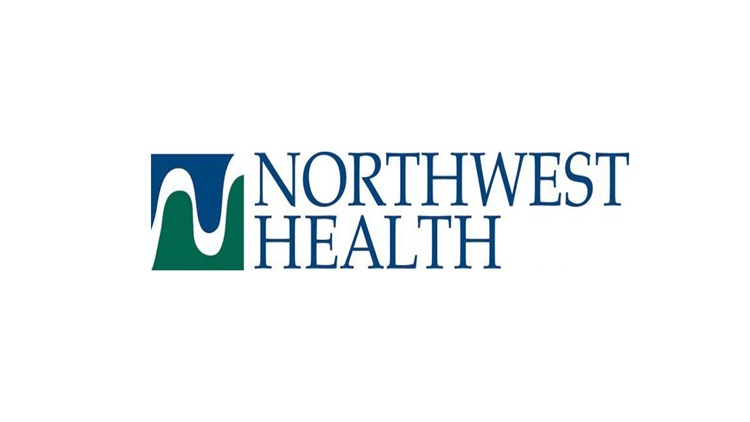ARKANSAS, USA — As school approaches, Northwest Health is reminding parents that an annual physical and the proper immunizations will start children's new school year on a healthy foundation.
“A yearly check-up helps physicians get to know the unique medical history of your child and allows us to monitor their development from year to year,” said Cesar Hurtado, M.D., of Northwest Medical Plaza – Eastside. “By having your child’s health history and this baseline information, it can help us identify potential concerns easier.”
Northwest Health says that even if children are healthy, they should still receive an annual checkup. During the checkup, parents can discuss with the physician any developmental, emotional, or social concerns.
Even though children 12 years of age or younger are still not eligible for COVID-19 vaccinations, Northwest Health says there are numerous other vaccines parents should discuss with their child’s physician, especially for children starting school for the first time.
“Part of getting ready to go back to school is ensuring your child is up to date on their immunizations or vaccines,” Dr. Hurtado said. “It’s important that children receive these boosters at the right time because these shots will protect your child as they continue to grow.”
Most insurance plans, including Medicaid, cover a free annual well-child visit.
For help with finding a primary care physician, you can call 833-757-WELL (9355) or visit NW-Physicians.com to find a provider near you.
Schools districts may have different requirements for immunizations so it will be best to check with your local school district about required vaccines for school admission.
Guidelines for well-child visits and routine immunization schedules can be found on the American Academy of Pediatrics website at aap.org.
A vaccine guide for parents has been provided below by Northwest Health.
Vaccines: A Guide for Parents
Vaccine protection far outweighs the small risk of serious side effects. Thanks to vaccines, many serious childhood diseases are rare today. Without vaccines, diseases can return and impact large numbers of the population. Visit https://bit.ly/3rXQ905 for a “Birth through Age 18 Immunization Schedule” as recommended by the American Academy of Family Physicians.
• COVID-19 Vaccination – The CDC’s Advisory Committee on Immunization Practices (ACIP) recommends use of COVID-19 vaccines for everyone ages 12 and older within the scope of the Emergency Use Authorization for the particular vaccine. COVID-19 vaccine and other vaccines may be administered on the same day.
• Flu vaccine – The flu vaccine is offered in a shot or nasal spray form. The shot contains dead viruses and the nasal-spray vaccine contains live but weakened viruses. Because flu viruses change each year, it is important to get the vaccine every year.
• DTaP vaccine – DTaP protects against diphtheria, tetanus, and pertussis. Diphtheria is a disease that attacks the throat and heart and can lead to heart failure and death. Tetanus (also called “lockjaw”) can lead to severe muscle spasms and death. Pertussis (also called “whooping cough”) can cause severe coughing that makes it hard to breathe, eat or drink. It can lead to pneumonia, convulsions, brain damage, and death.
• Td vaccine – The Td vaccine is used as a booster to the DTaP vaccine, to help prevent tetanus and diphtheria, given at age 11 or older and every 10 years throughout life.
• IPV (Polio) vaccine – The IPV (inactivated poliovirus) vaccine helps prevent polio. Polio can cause muscle pain and paralysis in the legs or arms, as well as those muscles used to breathe and swallow, and can lead to death.
• Rotavirus vaccine – The Rotavirus vaccine protects against the rotavirus which causes diarrhea, mostly in babies and young children. The diarrhea can be severe and cause dehydration. Rotavirus also can cause vomiting and fever in babies. Children receive a dose at 2 and 4 months of age, or a three-dose series at 2, 4, and 6 months of age. It depends on what your doctor recommends. All doses should be given before 8 months of age.
• MMR vaccine – The MMR vaccine protects against measles, mumps, and rubella. Measles causes fever, rash, cough, runny nose, and watery eyes; as well as ear infections and pneumonia. Measles also can lead to brain swelling and even death. Mumps causes fever, headache, and painful swelling of one or both of the major saliva glands. It can lead to meningitis (infection of the coverings of the brain and spinal cord). Rubella is also called the German measles. It causes slight fever, a rash, and swelling of the glands in the neck. Rubella can also cause brain swelling or a problem with bleeding.
• Hib vaccine – The Hib vaccine helps prevent Haemophilus influenza type b, a serious illness in children that can lead to meningitis, pneumonia, and a severe throat infection that can cause choking.
• Varicella (chickenpox) vaccine – The varicella vaccine helps prevent chickenpox. It is given to children once after they are 12 months old or to older children if they have never had chickenpox or been vaccinated.
• HBV vaccine – The HBV vaccine helps prevent hepatitis B virus (HBV), an infection of the liver that can lead to liver cancer and death.
• HPV vaccine – The HPV vaccine helps prevent human papillomavirus infection, which can cause cervical cancer as well as genital warts. It is given as a two-shot series if given around the age of 11 or 12 years of age. The second dose is given 6 months later. Children who start the vaccine on or after their 15th birthday need three shots given over 6 months.
• Pneumococcal vaccine – The pneumococcal conjugate vaccine (PCV) protects against a common bacteria linked to ear infections as well as more serious illnesses, such as meningitis and bacteremia (infection in the bloodstream).
• Meningococcal vaccine – The meningococcal conjugate vaccine (MCV4) protects against bacterial meningitis, an infection of the fluid around the brain and spinal cord. It is a serious illness that can cause high fever, headache, stiff neck, and confusion, as well as more serious complications like brain damage, hearing loss, or blindness.



